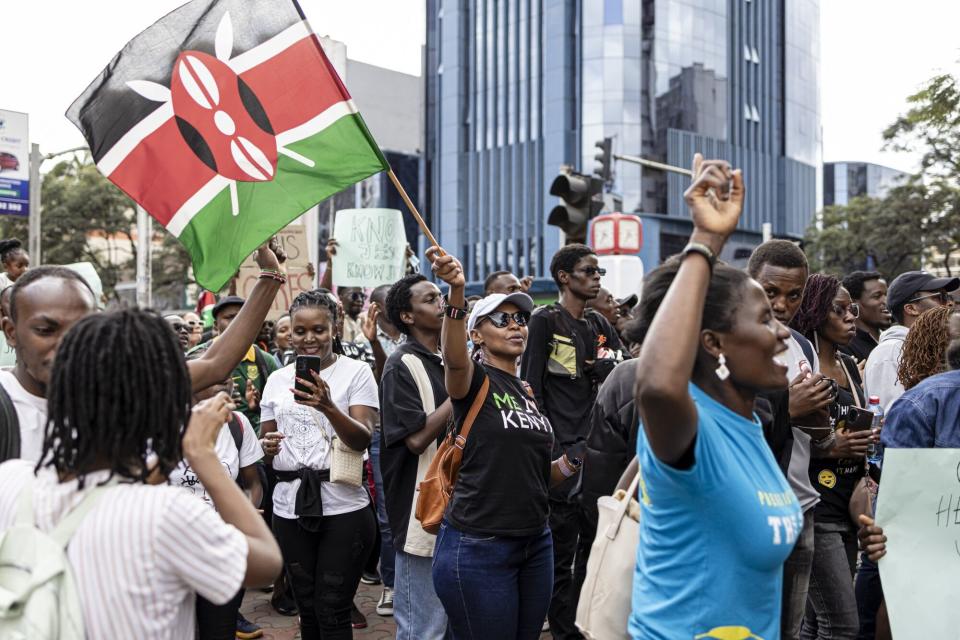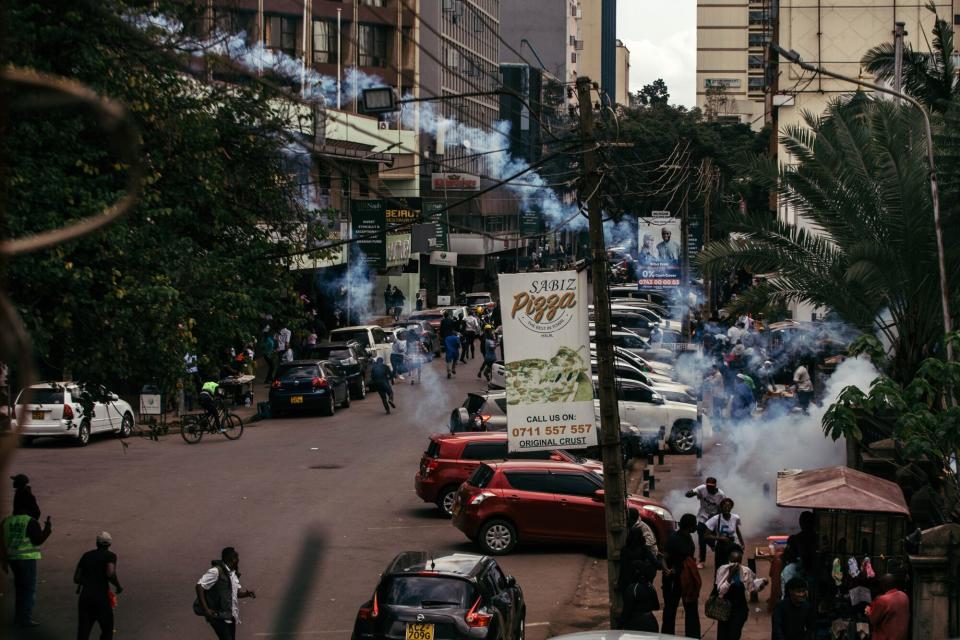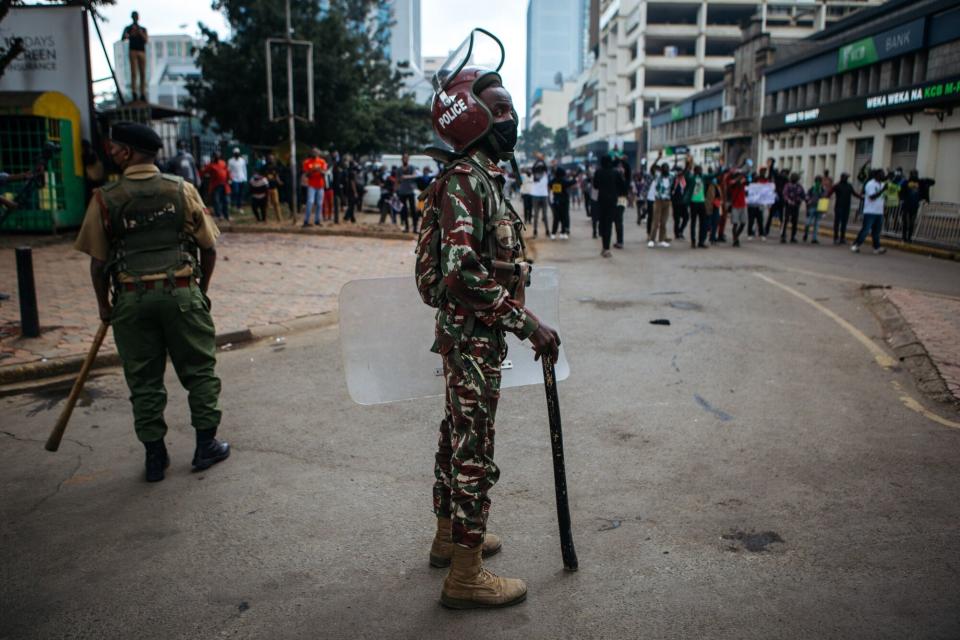Kenya Barricades Parliament Precinct Before Tax Vote
(Bloomberg) -- Kenyan police set up barricades around parliament and businesses shuttered their offices in the capital as legislators voted on new taxes that have triggered widespread protests.
Most Read from Bloomberg
YouTuber Dr Disrespect Was Allegedly Kicked Off Twitch for Messaging Minor
VW Latches Onto Rivian in $5 Billion EV Pact to Regain Momentum
Nvidia Rout Takes Breather as Traders Scour Charts for Support
Julian Assange Leaves Court ‘Free Man,’ Ending 14-Year Drama
Anti-government demonstrators have called for a shutdown of the economy over revenue-raising measures they say are pushing more of the nation’s 54 million people into poverty. The activists also want the government to focus more attention on rooting out corruption and ending non-priority spending.
Police fired rubber bullets to disperse hundreds of people who had gathered near the National Assembly buildings in the central business district on Tuesday morning chanting “don’t use force, we are peaceful demonstrators.” The sound of tear-gas cannisters exploding rang out across the city.
President William Ruto has pushed for the taxes on everything from motor vehicles to mobile-money transfers to raise $2.4 billion to help stabilize the state’s finances and secure funding from the International Monetary Fund. Kenya agreed an economic reform program with the IMF in 2021 that commits the government to reducing the budget deficit, boosting revenue collection and curbing wasteful spending.
The government pledged to amend some of the contentious measures — including a 16% value added tax on bread - but the demonstrators have demanded the entire package be withdrawn. At least two people died last week after police allegedly fired on protesters.
Parliament’s minority leader alleged that a number of people have been abducted in the government’s efforts to clamp down on the protests.
“A trend is now emerging of abductions of people,” parliament’s minority leader Opiyo Wandayi told lawmakers on Tuesday. Those allegedly abducted from their homes include Gabriel Oguda, a policy research analyst who’s a critic of the government on social media, he said. “He should be released or taken to court and charged.”
Lawmakers began debating the so-called Finance Bill at 9:30 a.m. local time. They voted against the proposal to introduce a 2.5% motor-vehicle levy and the introduction of an eco levy on some items including diapers and sanitary pads.
Sign up here for the twice-weekly Next Africa newsletter
Social media is playing a key role in coordinating the nationwide demonstrations, with so-called Gen Z protesters using platforms such as X and TikTok to organize and air their grievances.
“Kenya has a democratized tech ecosystem that has allowed these protests to happen,” according to Odanga Madung, a researcher at web browser maker Mozilla. Most people likely learned about the impact of the proposed taxes through social media, he said.
Civil society groups including Amnesty International have expressed “deep concerns” that the authorities may block Internet connectivity to neutralize the protests.
While previous protests in Kenya were led by opposition leader Raila Odinga, the current agitation appears to be a grassroots movement without a clear leader, complicating efforts by the authorities to stop the demonstrations.
Authorities “thought that with Odinga partly pacified through the government’s support of his regional ambitions, the outrage would be smaller and easier to contain,” said Nic Cheeseman, professor of democracy at the University of Birmingham. Kenya’s government is campaigning to have Odinga elected as chairman of the African Union Commission.
You can follow Bloomberg’s reporting on Africa on WhatsApp. Sign up here.
--With assistance from Simon Marks.
(Corrects National Assembly name in the third paragraph)
Most Read from Bloomberg Businessweek
How Jeff Yass Became One of the Most Influential Billionaires in the 2024 Election
Why BYD’s Wang Chuanfu Could Be China’s Version of Henry Ford
Independence Without Accountability: The Fed’s Great Inflation Fail
©2024 Bloomberg L.P.





